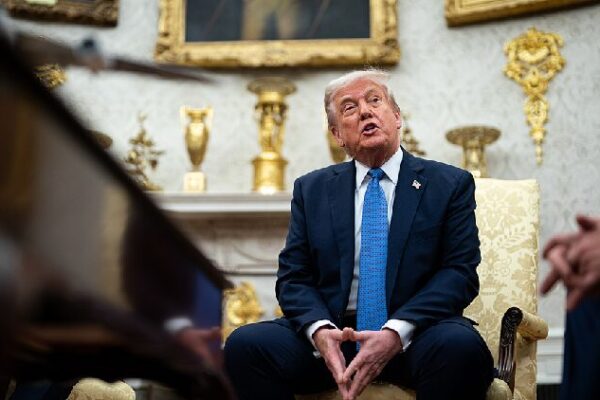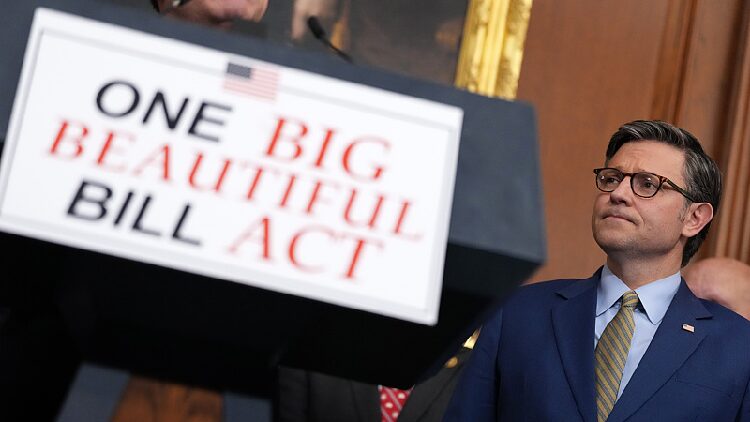U.S. President Donald Trump has unveiled plans to impose a 25% tariff on all imported automobiles, set to take effect on April 2. “What we’re going to be doing is a 25 percent tariff for all cars that are not made in the United States,” Trump stated. “We start off with a 2.5-percent base, which is what we’re at, and go to 25 percent.”
The president argued that the tariffs would encourage automakers to relocate production to the U.S., generate new revenue, and help reduce the national debt. However, economists warn that the tariffs could lead to higher car prices, negatively impacting consumers.
Global Concerns Over Tariff Impact
Mexico’s Monex Financial Group cautioned that the tariffs could increase production costs for Mexico and Canada, adding pressure to an already strained global auto industry. In a sectoral analysis, Monex noted that recent U.S. tariffs on steel and aluminum imports are disrupting trade flows and supply chains. Mexico and Canada together accounted for nearly 40% of U.S. steel imports in 2023 and supply about 29% of America’s imported vehicles.
An additional 25% auto tariff would significantly impact pricing and availability. For Mexico, the tariffs could affect exports worth 4.7% of its total trade and over 1.5% of its GDP. Industry estimates suggest the move could add up to $3,000 to the average cost of a car in the U.S., potentially reducing 2025 sales. Only vehicles meeting the 75% regional content rule under the USMCA trade agreement would be exempt.
EU Warns of Negative Effects
European Commission President Ursula von der Leyen expressed concern, stating that tariffs are harmful to businesses and consumers in both the U.S. and the European Union. “The automotive industry is a driver of innovation, competitiveness, and high-quality jobs, with deeply integrated supply chains on both sides of the Atlantic,” she said. “We will now assess this announcement, together with other measures the U.S. is envisaging in the coming days.”
Von der Leyen emphasized that the EU would continue to seek negotiated solutions while protecting its economic interests.
Canada Considers Retaliation
Canadian Prime Minister Justin Trudeau indicated that his government is exploring options for retaliation against the U.S. auto tariffs. While speaking to media, Trudeau said the tariffs are “a direct attack” against Canadian workers. “We have anticipated this possibility,” he stated. “We will take the steps that are in the interests of Canadian workers, of Canada. We’re going to stand up for Canada.”
Previously, Trudeau announced a strategic response fund valued at 2 billion Canadian dollars ($1.4 billion) to bolster the country’s auto industry. The funds would be used to enhance competitiveness, protect manufacturing jobs, and strengthen Canada’s supply chain.
UK Trade Body Expresses Disappointment
The UK’s Society of Motor Manufacturers and Traders (SMMT) voiced disappointment over the planned tariffs. Mike Hawes, SMMT’s Chief Executive Officer, stated, “The announcement is not surprising but, nevertheless, disappointing if, as seems likely, additional tariffs are to apply to UK-made cars.”
Hawes called on both the UK and the U.S. to “come together immediately and strike a deal that works for all,” emphasizing the longstanding and productive relationship between the two nations’ automotive industries.
Japan to Consider Response
Japanese Prime Minister Fumio Kishida announced that Japan would consider an appropriate response to the U.S. tariffs, vowing that all options are on the table. “We are strongly urging the U.S. not to apply the 25-percent tariff to Japan,” Kishida said. Citing Japan’s contributions to the U.S. economy through investment and job creation, he questioned the fairness of a uniform tariff increase for all countries.
Reference(s):
Trump plans to impose 25% tariff on imported automobiles on April 2
cgtn.com








